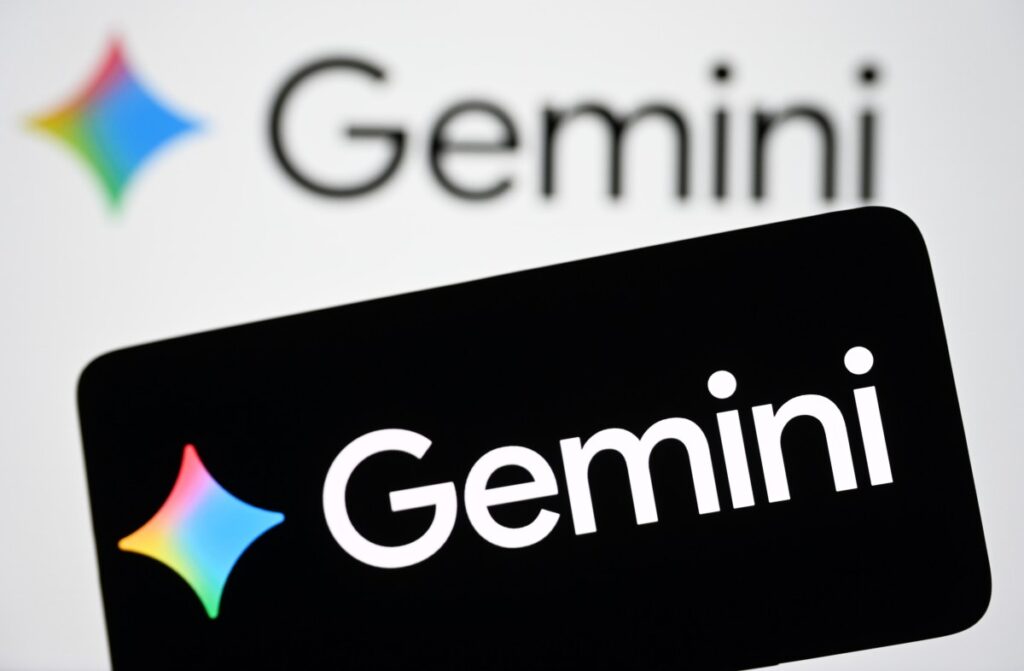General Motors announced Wednesday during an event in New York City that it will add a conversational AI assistant powered by Google Gemini to its cars, trucks and SUVs starting next year.
The rollout of Google Gemini is one of several technology-centric announcements made at the automaker’s GM Forward event, and one of the first to reach consumers. Other features won’t arrive at GM brands until 2028, including an overhaul of the electrical architecture and computing platform, as well as self-driving features that keep drivers’ hands off the wheel and their eyes on the road.
GM is the latest automaker to focus on generative AI-based assistants that promise to respond to driver requests in a more natural way. Stellantis partnered with French AI company Mistral, Mercedes integrated ChatGPT, and Tesla brought xAI’s Grok to its vehicles.
GM’s integration with Gemini is a logical next step for the automaker. Vehicles produced by GM brands Buick, Chevrolet, Cadillac, and GMC already have Google built-in. This is an operating system that allows drivers to access Google Assistant, Google Maps, and other apps directly from their car’s infotainment screen. In 2023, Google began using Google Cloud’s Dialogflow chatbot to handle non-emergency OnStar functions, including common driver queries such as routing and navigation assistance.
GM’s Gemini-powered AI assistant will have a similar level of functionality, with only improved performance, said Dave Richardson, senior vice president of software and services.
“One of the challenges with voice assistants today is that if you’ve ever used a voice assistant, you’ve probably been frustrated because they’re trained on certain code words, or they don’t really understand accents, or you have to say it correctly to get the right response,” Richardson told TechCrunch. “The great thing about a large language model is that it doesn’t seem to be affected by it. The language model has context about previous conversations and can bring that with it. The language model is flexible in how it speaks. So you get a better, more natural experience overall.”
This might make it easier to draft and send messages, plan routes with additional stops (like charging stations or your favorite coffee shop), and even prepare for meetings on the go. The assistant can also access the web to answer specific questions, such as “What is the history of this bridge I’m driving across?”
tech crunch event
san francisco
|
October 27-29, 2025
Gemini Assistant will be available via the Play Store as an over-the-air upgrade to OnStar-equipped vehicles starting with the 2015 model year.
GM’s new voice assistant is a step toward the automaker’s goal of developing its own custom AI that connects to vehicle systems through OnStar, GM’s in-vehicle concierge. The way GM executives described the technology at an event in New York City, it looks like a combination of a health wearable and an AI pendant, but for cars.
The assistant promises to access vehicle data to provide maintenance alerts and route suggestions, explain car features like one-pedal driving, and even turn on the heat or air conditioning before you get in your car.
“The idea here is that you take [an existing] “We take a base model, train it based on the vehicle specifications, extract it and run it on the vehicle,” Richardson said.
While GM has a close relationship with Google and has already deployed Gemini in certain vehicles, Richardson said GM plans to test several underlying models from other AI companies, including OpenAI and Anthropic.
Richardson said drivers will be able to control what information the assistant can access and use, and the assistant will be able to learn from the user’s habits to provide personalized recommendations. GM’s focus on user controls is notable given the company’s recent controversy over selling customer driving and geolocation data to insurance brokers.
Richardson said the data GM collects from drivers will be used directly to improve its products and will not be sold to generate additional revenue for the automaker. Over the past nearly two years, GM has brought in a new data team, including Christina Montgomery, who spent 30 years as chief privacy and trust officer at IBM, to put standard processes and data governance technology in place.
“Everything we do is based on customer consent, so you can opt in or out at any time,” he said. “Our perspective is that data and privacy need to be built into everything we do.”
This article has been updated with comment from Dave Richardson.
Source link

